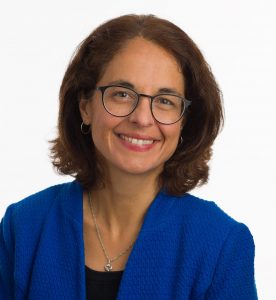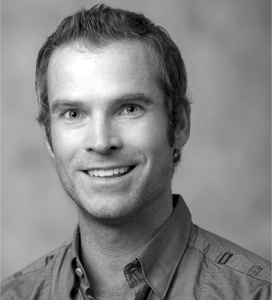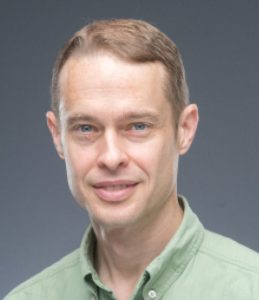Research Team

Michelle Van Noy (Principal Investigator) is Director of the Education and Employment Research Center at the School of Management and Labor Relations at Rutgers. She has extensive experience conducting research on STEM education and workforce development and leading large-scale research projects. She is PI on Pathways to Technician Careers an ATE-targeted research project examining student decision-making about programs and careers in information technology, and co-PI on an NSF project, Pathways to Science and Engineering Professions: Persistence and Career Choice for Bachelor’s and Master’s Graduates, Who Goes on? Who Doesn’t? and Why? She has conducted research on higher education labor market responsiveness, community college workforce education programs in a range of sectors, community college student outcomes, and employer perceptions of associate degrees for IT technicians. She served on the National Academy of Science’s committee on Barriers and Opportunities for 2-year and 4-year STEM degrees.
 Marilyn Barger (Co-Principal Investigator), is Director of FLATE, the Florida Advanced Technological Education Center of Excellence, previously funded by the National Science Foundation (NSF) and currently housed by FloridaMakes, the NIST Manufacturing Extension Partnership (MEP) Center in Florida. FLATE’s mission is to support manufacturing workforce education in K-12, post-secondary and 2-year college programs with best practices in outreach and recruitment, curriculum development and reforms and professional development.
Marilyn Barger (Co-Principal Investigator), is Director of FLATE, the Florida Advanced Technological Education Center of Excellence, previously funded by the National Science Foundation (NSF) and currently housed by FloridaMakes, the NIST Manufacturing Extension Partnership (MEP) Center in Florida. FLATE’s mission is to support manufacturing workforce education in K-12, post-secondary and 2-year college programs with best practices in outreach and recruitment, curriculum development and reforms and professional development.
Dr. Barger will coordinate the project Advisory Board and work directly with college partner sites. She will also lead the dissemination efforts. She brings a wealth of knowledge and experience about NSF and the ATE ATE projects and Centers to this research.
Dr. Barger earned her Ph.D. in Civil Engineering (Environmental) from the University of South Florida, where her research focused on membrane separation science and technologies for water purification. Dr. Barger serves on several national panels and advisory boards for technical programs, curriculum and workforce initiatives, including the National Association of Manufacturers Educators‘ Council. She is a Fellow of the American Society of Engineering Education, a member of Tau Beta Pi and Epsilon Pi Tau honor societies. She is a charter member of both the National Academy and the University of South Florida Academy of Inventors. Barger holds a licensed patent and is a licensed Professional Engineer in Florida.

Dan Douglas is an assistant professor at Montclair State University. He received his PhD in Sociology from the City University of New York. His research focuses on college access and success, mathematics education, and the transition from college into the labor force. He teaches courses education and research methodology. He joined the sociology program at Montclair State University in fall 2024.

Allison Forbes (Co-Principal Investigator) is Vice President of Research at the Center for Regional Economic Competitiveness (CREC). Dr. Forbes has 19 years of professional experience in federal and local policy-making and related research. She has provided research support to state housing, economic development, and education agencies and worked with a variety of local stakeholders including local housing developers, environmental groups, labor organizations, community colleges, entrepreneurship incubators and small businesses consortiums.
At CREC, Dr. Forbes primarily focuses on data-driven approaches to understanding industrial change and corresponding trends in education and training. She leads several initiatives that improve the availability of information useful to educators, employers, and their intermediaries: expanding access to LMI for more equitable pathways and estimating future skill demand. In 2019, she supported development of the National Association of Workforce Board National Labor Exchange, the U.S. Chamber of Commerce Foundation Talent Pipeline Management, and Job Data Exchange initiatives, and she served as Senior Research Affiliate on an interdisciplinary team with the MIT Task Force on the Work of the Future, working to understand how regional workforce development systems are adapting to technological change.

Alysa Hannon is a researcher at EERC where she focuses on the economic development dimensions of workforce development, including the community college role. At SMLR, Alysa is also a PhD Candidate in Industrial Relations, examining the political economy of training systems through her research, and she teaches in SMLR’s Labor Studies department, including courses like Labor and Democracy and Perspectives on Labor Studies.
Prior to academia, Alysa worked in economic and workforce development for ten years. She has worked for the New York City Economic Development Corporation, managing their industry impact portfolio, and consulted Los Angeles County on similar issues. Prior to that, Alysa managed federally funded economic development projects in the Middle East, based both in Washington, D.C. and the MENA region. Alysa is a former Fulbright scholar; she holds a Bachelor of Science in Foreign Service (B.S.F.S.) and a Certificate in International Development from Georgetown University’s School of Foreign Service.

William (Bill) Mabe has nearly 20 years of experience in using longitudinal administrative data to study the employment and economic effects of education and workforce development policies and programs. Much of his work has focused on evaluating the effectiveness policy initiatives and programs that support community colleges and the public workforce system. To deliver the results of his analyses, Bill has authored numerous studies and built practical tools for data visualization.
 Justin Vinton is a faculty Research Associate at the Education and Employment Research Center at the School of Management and Labor Relations at Rutgers, The State University of New Jersey. Dr. Vinton studies labor and employment relations with a primary focus on worker voice and representation, skill provision and credentials, labor-management collaboration, and workforce and economic development. His current work examines the role of community colleges and other postsecondary training providers in economic development, and their growing coordination with employers, students, and other stakeholders to improve program implementation and data collection (both degree and non-degree). His other work focuses on the voice and complex roles of labor-management partnership stakeholders in US public education and healthcare.
Justin Vinton is a faculty Research Associate at the Education and Employment Research Center at the School of Management and Labor Relations at Rutgers, The State University of New Jersey. Dr. Vinton studies labor and employment relations with a primary focus on worker voice and representation, skill provision and credentials, labor-management collaboration, and workforce and economic development. His current work examines the role of community colleges and other postsecondary training providers in economic development, and their growing coordination with employers, students, and other stakeholders to improve program implementation and data collection (both degree and non-degree). His other work focuses on the voice and complex roles of labor-management partnership stakeholders in US public education and healthcare.
Justin has taught numerous undergraduate courses, including Diversity and Inclusion at Work, Intro to Labor and Employment Relations, Youth and Work, and other related courses in labor relations and economics. He received his PhD from the Rutgers School of Management and Labor Relations in January 2024.

Andrew Weaver (Co-Principal Investigator), is an Assistant Professor in the School of Labor and Employment Relations at the University of Illinois at Urbana-Champaign. His research focuses on the impact of institutions on labor market outcomes, workforce-related public policy issues, and topics linking employment issues with economic productivity and growth. His current research measures industry skill demands and explores whether skill gaps exist in the American economy. He has conducted three nationally representative skill surveys in the manufacturing, computer/IT, and healthcare sectors. He will be conducting four regional surveys of manufacturers for the NSF Hidden Innovation Infrastructure project. Weaver earned his PhD at the MIT Sloan School of Management. Prior to academia, Weaver was Vice President at NCB Capital Impact.